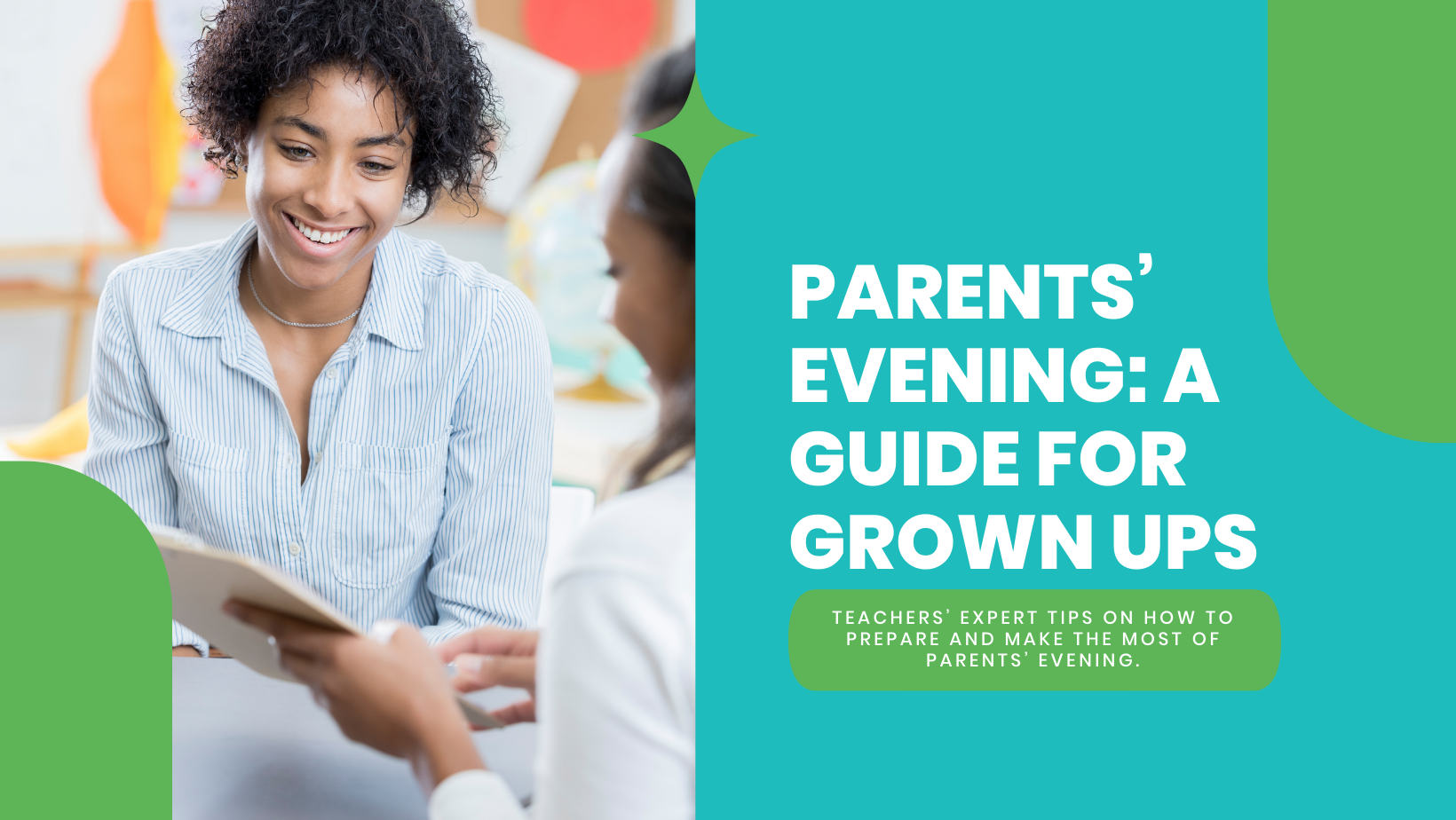Our top tips for making the most out of parent's evening
For many of us, memories of Parents’ Evening as a student opens a flood of emotions: nervousness, dread, downright panic. But going into one of these evenings as a parent, surely, we shouldn’t feel the same way?!
Parents' Evenings are an essential part of your child's educational journey. They are a great opportunity to connect with teachers, gain insight into your child’s progress, strengthen the parent-school partnership, and ask questions.
However, Parents' Evenings can also be stressful and overwhelming – not only for students but for parents too. To help you, we've put together this handy guide with practical advice for making the most out of these evenings.
1. Prepare Ahead of Time
Preparation is key to a successful Parents' Evening. Start by gathering any relevant materials, such as your child's recent report or results (if you have them). You might also like to look at previous reports, so you have some context.
Highlight anything that you don’t understand or would like clarification on. If your child is in Secondary education, ask them to tell you which teacher they have for each subject. Make a list of questions you would like to ask (more on that later!).
2. Do Your Research
The world of modern education can seem like a daunting place to anyone who is not directly involved in it. There are lots of abbreviations and acronyms to get your head around. There is a wealth of information to be found online.
The website for your child’s school will share policies about their assessment process – so this can be a good place to start to find out how things work. National government websites are also brimming with useful details – particularly the National Curriculum.
A quick internet search will give you the expectations for your child’s age group and what they should be learning. By familiarising yourself with this prior to the Parents’ Evening, you will feel much more prepared.
3. Be Organised
In most schools, you will have made your appointments in advance, either via your child or electronically. Double-check that this is a time you and any other parent/adult can attend. If your child is at Secondary school, write down which teacher you are seeing and at what time.
Although sometimes appointments can over-run, having a clear list of who you will be talking to and when can help make sure your evening runs smoothly. If you have specific questions for a subject teacher, write these down too.
4. Take Notes
During the meetings, it is absolutely fine to take notes on what the teacher is saying. Let the teacher know what you are doing – and don’t worry – teachers welcome note-taking; anything that can help you understand how best to support your child is great. This will help you remember important details and action points after the evening has concluded.
5. Ask Questions
This is the big one for many parents! Firstly, don't hesitate to ask questions during your meetings. This can be academic, behaviour or attitude. Often, a child’s report will be given to your during or just before a Parents’ Evening and this will have lots of information in it. But what if you still have questions? And what should you ask?
Here are some useful questions that you might want to make a note of before your appointments:
Primary
- Is there anything my child specifically struggles with academically?
- Is there anything we can do at home to support their learning?
- Do you think my child enjoys being at school?
- What do you think my child’s strengths are?
- Does my child understand the instructions you give them?
Secondary
- What do you think my child’s strengths are in this subject?
- Is there anything additional that my child could do to support their learning in this subject?
- Do you think my child enjoys this subject?
- Is my child prepared for your lessons?
- Does my child engage with the lessons in this subject?
6. Communicate
If you choose not to take your child to Parents’ Evening, make sure you share it with them. Talk to them about what was said. If you have a younger child, ask them what they think their teacher said their favourite subject was and why.
Ask them if their teacher said they are helpful. Asking a younger child to think about Parents’ Evening in this way is much easier for them to understand.
For older children, share what their teacher thinks they are good at and what they can work on. Ask them if they think they might need some help with anything discussed. Try to keep it positive!
7. Follow Up
After Parents' Evening, don’t be worried about following up on any action points or suggestions. Discuss this with your child too – they are, after all, a big part in this! If you have tried something at home that has helped your child, let the teacher know.
Staying in communication with the teacher will not only monitor your child's progress but ensure that your child recognises the collaborative approach to support them!
Ultimately Parents’ Evenings are not to be feared – by pupils or parents! They are a great way to work together. Look at it as a team effort; your child, you, and the teachers all in it together to ensure your child has a positive and fulfilling educational experience.










